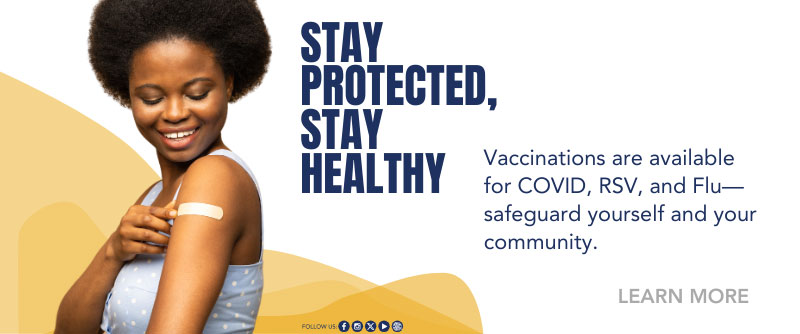
Jackson, Miss. — The Mississippi State Department of Health (MSDH) has confirmed that an infant in the state recently died from pertussis. The infant was less than 2 months old and was not age-eligible to be vaccinated against pertussis. MSDH does not provide details of the gender or location of these deaths out of respect and privacy for the family.
Pertussis, also known as whooping cough, is a highly contagious respiratory disease that causes uncontrollable, violent coughs that make it hard to breathe. It most commonly affects infants and young children and can be fatal, especially in babies under 1 year old.
To date, 115 pertussis cases have been reported to MSDH since January 1, 2025. This is a sharp increase from the 49 pertussis cases reported during 2024. Including this death, there have been three pediatric pertussis deaths reported in Mississippi since 2008.
Vaccination is one of the safest and most effective ways to protect against pertussis and is recommended for everyone. The DTaP vaccine is recommended for younger children, while Tdap is recommended for older children, pregnant women and adults. Infants should receive DTaP vaccinations at 2, 4, and 6 months followed by two booster doses at 15 to 18 months and at 4 to 6 years. Pre-teens should receive a single dose of Tdap at 11 to 12 years to boost their immunity.
Pregnant women should receive a single dose of Tdap during each pregnancy in the 27th–36th week of pregnancy to help protect their newborns from pertussis during their first few months of life. The Centers for Disease Control and Prevention (CDC) also recommend a single dose of Tdap for adults who have never received Tdap. Although there is no routine recommendation for pertussis boosters, pertussis immunity wanes over time. It is recommended for adults to receive booster doses every 10 years to maintain protection against tetanus and diphtheria; healthcare providers can administer Tdap for this purpose.
If you are a grandparent or someone who will come into close contact with a young child, it’s more important than ever that you get vaccinated or boosted to ensure you don’t pass the disease on to the child. Even healthy adults can unknowingly spread dangerous respiratory infections like pertussis and RSV to infants, who are more susceptible to health complications, including death.
There is no distinct seasonal pattern to pertussis. Past trends suggest that cases may increase in summer and fall, and the pertussis vaccine usually takes up to two weeks to produce immunity. Pertussis vaccines for those 18 and under who are eligible for the Vaccines for Children (VFC) program are available at County Health Departments. Insurance, Medicaid, and the Children’s Health Insurance Program (CHIP) are also accepted for children’s pertussis vaccines. A list of all VFC providers can be found at msdh.ms.gov/vfc.
Adults who are underinsured or uninsured qualify for an adult pertussis vaccination at MSDH County Health Department clinics. Pertussis vaccinations for insured adults are widely available through private physicians, pharmacies, and retail centers.
To see if you qualify for a free vaccination, call (855) 767-0710 or visit msdh.ms.gov/pertussis to schedule an appointment, or for more information on pertussis.
While vaccination is the best protection against severe pertussis outcomes, there are other things you can do to reduce the spread of pertussis whether you are vaccinated or not. These measures include:
- Treatment with appropriate antibiotics if you have been exposed to pertussis.
- Covering your mouth and nose when coughing and sneezing.
- Staying at home when you or your children are sick.
- Washing your hands frequently and keeping them away from your face.
Pertussis is a Class 1A reportable disease and must be reported to MSDH by phone within 24 hours of first knowledge or suspicion.
Follow us on social media: facebook.com/HealthyMS | twitter.com/msdh | instagram.com/healthy.ms
Press Contact: MSDH Office of Communications, (601) 576-7667
Note to media: After hours or during emergencies, call (601) 576-7400

